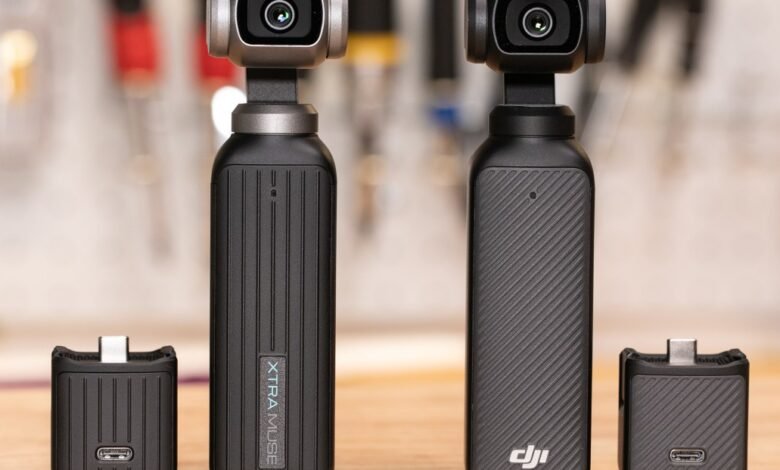How Xtra Helps DJI Cameras Enter the US Market

▼ Summary
– DJI appears to be selling its Osmo Pocket 3 camera through a new US company called Xtra Technology at a lower price, potentially to avoid tariffs.
– FCC teardowns and code analysis reveal Xtra’s cameras use identical hardware and software to DJI’s, with only branding changes.
– The Xtra Muse camera functions exactly like the DJI Osmo Pocket 3, including compatibility with most DJI accessories and identical performance.
– Xtra’s formation and rapid product rollout coincide with impending US regulations that could ban future DJI products starting December 2025.
– This setup may serve as a model for DJI to bypass potential US import bans, with Xtra planning to release more DJI product equivalents.
DJI’s popular Osmo Pocket 3 camera, a compact stabilizing gadget, now faces a significant price increase in the United States due to recent tariffs, pushing its cost to $799. However, a new company called Xtra Technology has emerged, offering what appears to be identical hardware for much less, sometimes as low as $499 during Amazon promotions. This development suggests a potential strategy to circumvent import duties and regulatory hurdles.
A software engineer and DJI observer, Konrad Iturbe, first highlighted Xtra’s activities. The company markets cameras that look and function exactly like DJI’s Osmo Pocket 3, Osmo Action 4, and Osmo Action 5 Pro. Detailed FCC teardowns reveal these devices use identical internal components, boards, and chips. Security expert Jon Sawyer analyzed Xtra’s companion app and found extensive copied code from DJI’s software, with only brand names altered. Despite these changes, the app still contains over 7,500 references to DJI’s LightCut video editor and even mentions the Avinox e-bike system.
DJI declined to comment when directly questioned about any connection to Xtra, a response that seems unusual given the straightforward nature of the inquiry. To verify the similarities firsthand, I purchased an Xtra Muse and compared it side-by-side with my personal Osmo Pocket 3. The two devices are nearly indistinguishable in operation. Both cameras power on and off with identical motorized gimbal movements, produce the same mechanical clicks, and exhibit matching face-tracking capabilities and heat distribution during use.
Accessory compatibility further blurs the line between the brands. The Xtra Muse recognized my Osmo Pocket 3 extended battery grip, displaying remaining power, and accepted DJI’s magnetic lenses while fitting perfectly into the original carrying case. The only noticeable difference involves wireless microphones; the Muse’s menu lacks options for the DJI Mic 2 and Mic Mini, though code analysis suggests future support may be planned.
Iturbe’s investigation of Xtra’s app uncovered references to upcoming DJI products, including the Osmo 360 and Osmo Nano, rebranded as Xtra Sphra and Xtra Atto. Public records show Xtra trademarked these names, reinforcing the connection. Although Xtra claims to be an independent Delaware-registered startup, its listed address corresponds to a service that facilitates low-cost company formations. Code analysis also points to Chinese servers and APIs, while security researcher Kevin Finisterre noted the app uses Bangcle/SecNeo obfuscation tools, commonly employed by Chinese firms like DJI.
While previous suspected DJI shell companies focused on commercial drones, Xtra exclusively sells consumer cameras, a shift coinciding with impending U.S. regulatory changes. Records indicate Xtra formed in March 2025, swiftly securing trademarks and FCC certifications before launching on Amazon by late September. This rapid timeline highlights how existing products can be remarketed quickly under new entities.
The urgency stems from a potential FCC ban on all future DJI products containing radios, scheduled for December unless a national security agency certifies they pose no risk. Such a move would block U.S. imports entirely. Iturbe views Xtra as a “public” test case for evading restrictions, potentially creating a template for other companies if successful. As regulatory pressures mount, this approach may become a common workaround for Chinese tech firms facing similar barriers.
(Source: The Verge)
